Phoenix Suns reset: Another mass exodus hopefully brings a foundation
Sep 24, 2019, 1:31 PM | Updated: Sep 25, 2019, 1:15 pm
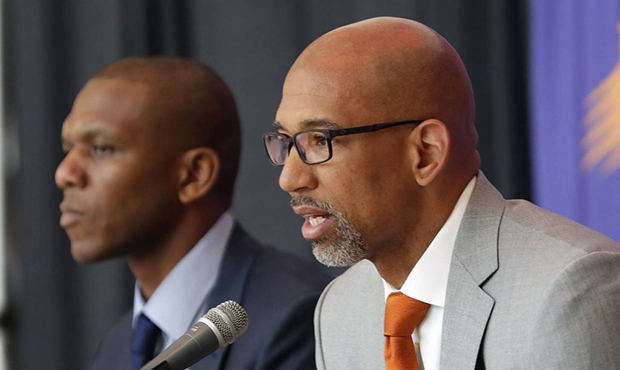
(AP Photo/Matt York)
(AP Photo/Matt York)
It might not feel like it, but a new NBA year is right around the corner.
The Phoenix Suns have their media day on Monday, serving as the unofficial start to the season. From there, it’s four days in Flagstaff at training camp to get everything in order for the preseason and beyond. The Suns’ season opener is a month away.
So, after an offseason full of movement, let’s hit the reset button for the Suns heading into the 2019-20 season. Get comfortable.
Out
Igor Kokoskov
Twelve days after the end of the season on April 23, Kokoskov was fired, a move that seemed to have some second-guessing behind it, backed up by the reporting of ESPN’s Adrian Wojnarowski.
The Suns won 19 games in Kokoskov’s lone season as head coach in a situation you’d be right to question if the franchise even made success possible for Kokoskov (*cough* POINT GUARD *cough*).
Including interim head coaches, the firing of Kokoskov locked in the team’s fifth head coach in five seasons taking over the reins. That’s Monty Williams, who has the characteristics of a coach you’d want in the Suns’ current situation.
T.J. Warren
The elder statesman (!) of the Suns coming into last season, the 2014 first-round pick Warren was traded on draft day to the Indiana Pacers along with the No. 32 pick in the 2019 NBA Draft for nothing, unless you count cash considerations.
The move was one that both felt necessary in order to clear cap space but was also surprising in the Suns needing to attach another asset to Warren to get rid of him. Warren will make an average of around $11.5 million each of the next three seasons but his improvement as a 3-point shooter and unique scoring acumen made him a worthwhile NBA player.
The Suns won’t necessarily miss Warren, though, as he became expendable with the success of Kelly Oubre Jr. and Mikal Bridges. And offense is the last thing this team should be worried about.
Josh Jackson
Two years after being picked No. 4 overall, Jackson, like Warren, was dumped in a trade. The Memphis Grizzlies received Jackson, De’Anthony Melton and two second-round picks for Kyle Korver (waived) and Jevon Carter (fighting for a roster spot).
Jackson’s off-the-court troubles were just as much of a problem as his lack of improvement on the court. The swiss army knife at Kansas has turned out to be an out-of-control, inefficient, turnover-prone scorer in the NBA and is still figuring out how to put it all together on defense.
He was legitimately one of the worst-performing players in the league last year and would have been taken out of the rotation had he not been a former top five pick. Like all busts in Phoenix the past six years, however, you can point to the organization’s turmoil and revolving door of coaches as a contributing factor.
Also like Warren, Jackson’s salary ($7 million) and the wing surplus made it logical enough to offload him.
De’Anthony Melton
Hey, remember when Melton started 31 games at point guard for this team?
He’s the one player in this section where there seemed to be unanimous disapproval with his departure. Having already established himself as one of the better defensive point guards in the league, Melton showed signs of improvement offensively throughout his helter-skelter rookie season moving in and out of roles.
He turned out to be part of the price to get rid of Jackson, and the Suns made it easier for themselves when they traded for the draft rights to Ty Jerome and signed Jalen Lecque. Melton’s athleticism will be sorely missed for the Suns and no one who watched him all year will be surprised if he turns into something real for the Grizzlies.
Richaun Holmes
For you poor souls who watched every Suns game last year, you’ll know that Holmes was consistently one of the Suns’ three best players most nights. Holmes brought energy and production playing behind Deandre Ayton, deserving a ton of credit for some of the success the second unit saw.
At 25 years old, Holmes looked like someone you could trust with rotation minutes on a good team, a claim few on last year’s roster could hold. If the Suns could afford him in free agency, it made a whole lot of sense to bring him back.
Alas, Holmes got the mid-level exception (two years, $10 million) from the Sacramento Kings in free agency and the writing was on the wall when Aron Baynes was included in the Jerome trade on draft night. Baynes is universally thought of as a better player than Holmes, but he’s got big shoes to fill, as Holmes routinely changed games for the Suns.
Dragan Bender
The Suns declining Bender’s team option for this upcoming season lit a fire under the former No. 4 pick. OK, it was more like a weak ember. Regardless, Bender seemed to finally find a certain level of confidence to play with.
He played the best basketball of his Suns career last season. That’s not saying much, though, as he completely lost his 3-point shot along the way while he was still prone to plenty of brain farts on both ends. He’s got what will likely be his last shot in the NBA (for a bit) in Milwaukee, trying to make their crowded roster.
Jamal Crawford
Crawford provided the Suns with a ball-handler capable of creating his own shot last season, something they desperately needed. And while Phoenix undoubtedly struggled while he was on the court last year (-15.1 net rating), you couldn’t count how many times young players spoke unprompted of Crawford’s leadership and times he gave them words of wisdom.
There is a serious chance the locker room would have self-imploded without Crawford there, a strange observation to make when you wouldn’t necessarily call him the “leader” of the team.
As I wrote last year, he was also constantly in Devin Booker’s ear to provide him a real mentor at his position. They are going to miss him.
Jimmer Fredette
I refuse to let this be forgotten.
In
Monty Williams
Let my favorite Suns Twitter ambassador Mr. Mason take you through the surprising competency of the Suns’ coaching search.
The Suns 1) targeted a big name in earnest instead of hiring a first-timer or promoting an interim, 2) ponied up instead of lowballing, and 3) he took the job.
Pretty incredible, huh?!
Time will tell if Williams is indeed a good NBA head coach but he’s at least the right type of one to have in the Suns’ current rebuilding situation, with all the pieces in place to start construction. They just need a, uh, architect or whatever to put ’em together and keep it propped up. He can do that! I think!
Ricky Rubio
The Suns got their point guard and one who we didn’t discuss much prior to June 30. Rubio was linked to the Indiana Pacers for weeks, only to see them execute a sign-and-trade for Malcolm Brogdon, opening up the chance for the Suns to swoop in.
James Jones overpaid to the tune of three years and $51 million to address the team’s biggest need with one of the league’s 20-or-so best at the position.
Rubio’s on-the-ball prowess will take pressure off Booker and create many more opportunities for Deandre Ayton. Here’s hoping he’s that extra bit of assistance the youngins need to get out of the NBA’s basement.
Dario Saric
The most under-the-radar move of the team’s offseason, the Suns got a starting-quality power forward in Saric for only five spots in a bad draft and the price of roughly $3.5 million.
Time will tell if Saric is a long-term piece (only 25!) or a short-term placeholder until next season when more cap space will open up.
Saric’s theoretical fit with Ayton is messy as a slow-moving iffy rebounder and shot-blocker but he can stretch the floor, plays tough and makes smart plays constantly. That can work with Ayton and Rubio.
Cam Johnson
Drafting Johnson No. 11 was the most perplexing move of the offseason. You can say that value-wise at that point in the draft, and then you get to the Suns’ roster that already has Bridges and Oubre on it.
Johnson’s positional versatility as a heady sharpshooter will be the key to his success and, quite frankly, getting time to play. At North Carolina, he appeared to be too weak to play any small-ball four and too slow to defend any two-guards, plus there are still hesitations about his defensive ability at his own position, small forward.
It’s unclear where Johnson will find minutes this season and that makes it an even odder choice in the draft, because most of the appeal in drafting a 23-year-old is their ability to play right away.
While this sounds harsh on Johnson, he’s precisely the type of player Williams is going to need with the way this roster panned out. Johnson’s rightful claim as the best shooter in his draft class and knack for making an impact without scoring, a la Bridges, would be of huge assistance.
Ty Jerome
Perhaps my favorite hypothetical of the offseason is whether the Suns would have pulled the trigger on trading the Bucks’ protected first-round pick for Jerome and Baynes knowing they’d be able to get Rubio, a signing that seemed to develop in the last 48 hours prior to June 30.
There was also Melton and Elie Okobo on the roster when they did this, pointing to the move being Jones’ mass cleansing of any player who even shook hands with Ryan McDonough and his lack of faith in those two young point guards developing.
Jerome’s pick-and-roll prowess and shooting will be a boost offensively. The counterpoint is whether the Suns need him this season, with Rubio commanding most of the point guard minutes and Tyler Johnson deserving to take just about the rest.
Because of Jerome’s shooting and basketball IQ, he can play off the ball with one of those guys. That would also absolutely submarine the defense unless Williams was playing specific matchups.
But like Johnson, because of that shooting and basketball IQ, Jerome can really help the Suns if he can carve out a role and be effective in it.
Aron Baynes
Baynes comes in with a well-earned pedigree as one of the toughest dudes in the league and a great teammate. He’s a solid rebounder, screen-setter and is good at picking up on everything that’s happening on the court.
That last bit might sound obvious or heavy-handed but this roster is filled with crafty, heady players so Baynes will only accentuate them.
His biggest responsibility is roughing up Ayton in practice and you won’t have to doubt his ability getting that done.
Frank Kaminsky
Why, tho?
As one of the team’s last moves on July 1, Kaminsky comes in as a stretch five or clunky power forward on a roster that already has Ayton, Baynes and Saric, with a crowded wing group that will surely see the likes of Bridges and Oubre play small-ball four at times. Baynes and Kaminsky together off the bench will very likely not end well if that is the intention.
While this is ultimately the ninth or 10th spot on the roster, the Suns would have been much better off getting more athleticism, which they actually wound up partially with the signing of Cheick Diallo. Still, the mid-level exception is a useful tool and the Suns did not get the most out of it unless Kaminsky has a breakout season in an iffy role. Remember, he struggled to get minutes for the Hornets.
Kaminsky will have a few scoring explosions that’ll be fun, at least!
Cheick Diallo
Diallo, who signed to a two-year deal with a team option on the second season, falls on the always-interesting paradigm of a clear NBA skill set that hasn’t been fully developed and exposed. This is where Holmes landed last year and he turned out to be a terrific acquisition.
Diallo is a much more vertical player than Holmes, less about quickness and explosion and more about length around the rim. In a dumpster fire of a situation last year in New Orleans, Diallo put up 15.5 points and 13.3 rebounds per 36 minutes on limited playing time.
If Williams likes what he sees out of Diallo, he could be a healthy alternative in the frontcourt.
Jalen Lecque
Lecque was the lone bright spot of a “why are we even doing this then?” 2019 Summer League for the Suns.
He is surprisingly much more than a mixtape hero, as he showed in Las Vegas, which brings optimism that he can be a long-term project that emerges as a legitimate point guard in a year or two. The kid plays tough defensively and has some nice slasher attributes.
Despite Lecque being on a four-year deal, don’t expect him to factor in this season.
Jevon Carter
There are one too many point guards on this roster.
I know. Irony. Jokes. Memes. Har, har, har.
Carter is a player from the 2018 NBA Draft you can go back and see we liked as a potential second-round selection for the Suns at No. 31. McDonough and Co. wound up taking Okobo instead of Carter, who went one pick later. Those two were even in the same pre-draft workout in Phoenix.
While Carter’s defense popped off the bench in Memphis over 577 total minutes, he also shot 30.3% from the field. At 24, he’s definitely more developed than Okobo but there’s no question who has the better potential and skill set in the NBA. There’s a chance the Suns are picking between them.
Still Here
Devin Booker
Booker is undoubtedly one of the best 30-35 players in the NBA and the only thing in his way from bumping that claim to the top 20 is winning.
In year five, he’s finally got a real team and an experienced NBA head coach to work with. It’s a fascinating year for Booker and his trajectory as a star, whether it’s him being too good for the Suns to be bad or if he winds up in a similar situation of producing incredible numbers on a terrible team.
Somewhere in the middle feels the most likely.
Deandre Ayton
How much Ayton improves in year two will be indicative of how good the Suns are this season.
He wasn’t ready last year to consistently be the team’s second-best player and option offensively but he needs to be now. Players of Ayton’s talent level will often have meteoric rises in year two and/or three in the NBA, even after successful rookie campaigns similar to his.
If that bump is more than incremental, Phoenix will be a problem. In, like, the good way.
Mikal Bridges
You know when you step outside and it’s not raining yet but you look up at the sky and don’t need a meteorologist to tell you that showers will soon be arriving? That’s what it felt like watching Bridges grow over the course of last season, forecasting a breakout season for him.
The best development in that regard is that the Suns don’t necessarily require that from Bridges. It can come together naturally while the 3-and-D stuff maximizes his contributions. Keep an eye on the 3-point percentage. That needs to go up.
Kelly Oubre Jr.
The Hurricane Father now has a $15 million price tag to live up to.
Oubre is actually the player I’m the most curious to see alongside Rubio. He’s such an unconventional scorer — relying heavily on drives and barely taking jumpers off the dribble — that I wonder how much the Spaniard tries to set him up in his spots. Rubio is also going to be on Oubre for his tendency to fall asleep off the ball defensively while loving his tenacity on it and look for him in transition. I think they are going to be a perfect match.
The underlying storyline on the wing this year will be how Williams chooses to allocate minutes between Bridges, Johnson and Oubre. Is that more minutes for Bridges at the two? Oubre playing small-ball four like last year? Can he squeeze in Johnson anywhere? How Williams does that, on top of adjusting given how well the trio is playing, is something to monitor.
Tyler Johnson
No shots intended at Johnson when I say it’s not easy to remember he’s on this roster. He was acquired at the trade deadline, played in only 13 games and then Phoenix acquired four new guards in the offseason.
An effective Johnson will bring stability to the Suns’ second unit offense, something the Suns’ first unit offense didn’t even have.
The hope is Rubio and Johnson equal a competently-run team for 48 minutes. At the very least, they will be two veteran guards everyone else on the roster has no choice but to respect given the way they play. When’s the last time you could say that about a Suns roster?
And while the Suns’ bench lacks pop, they have players with adequate NBA skills Johnson can get the most out of like Baynes, Kaminsky and whoever gets the nod on the wing and at guard.
If Jones wants to get weird with a mid-season trade, Johnson’s $19.2 million expiring is the functional tool to get it done. That was a large part of the appeal for the Suns acquiring Johnson in the first place.

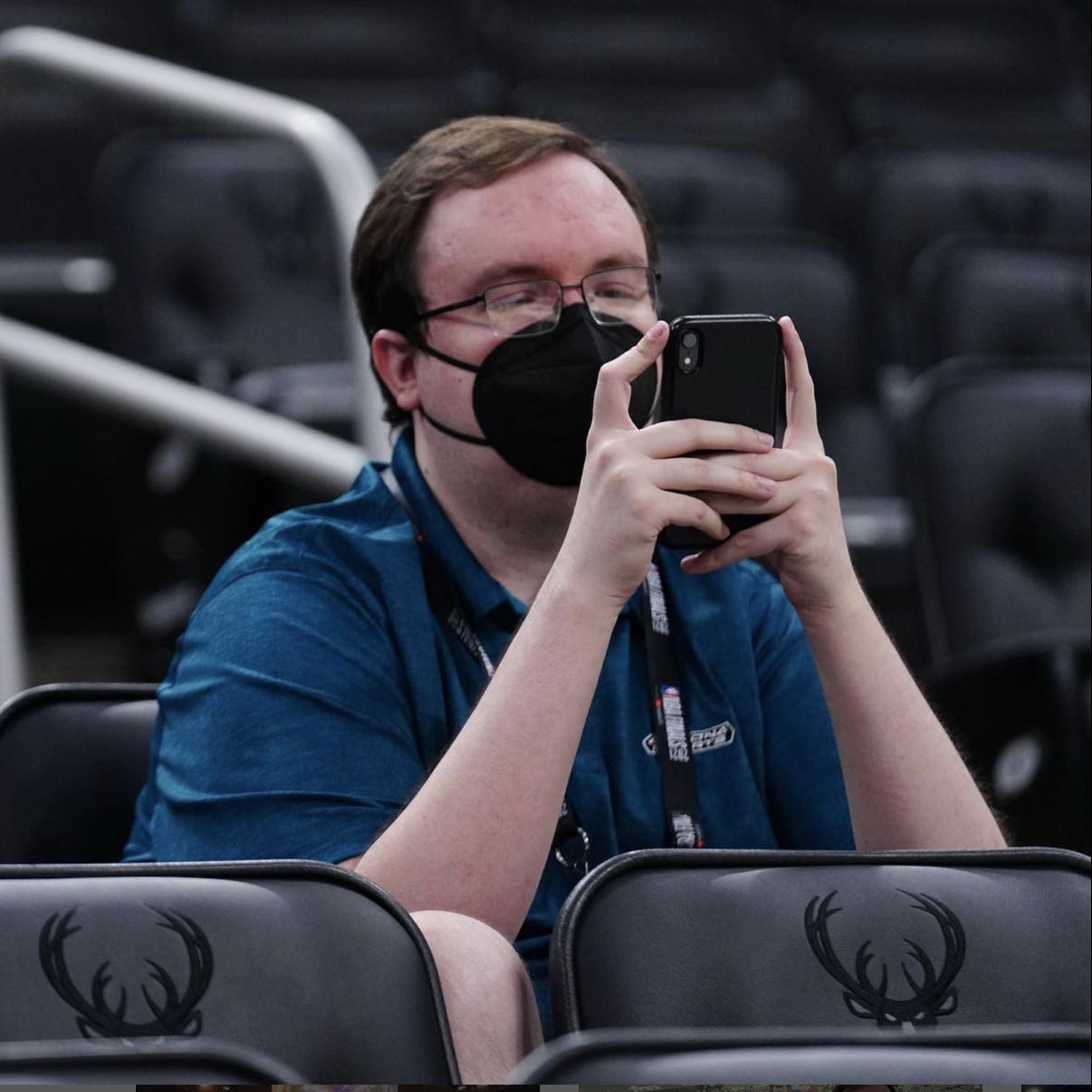
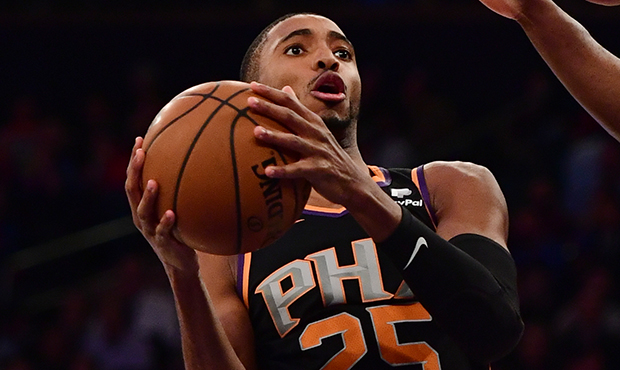
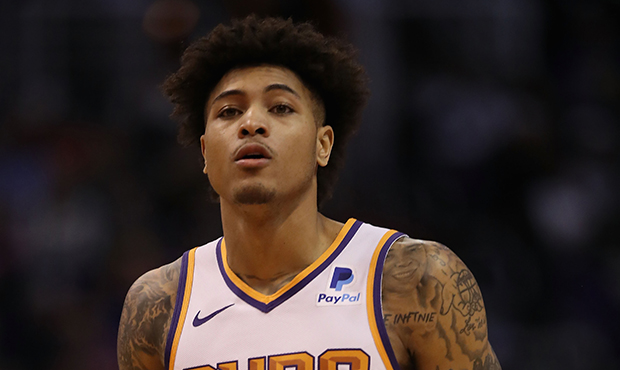
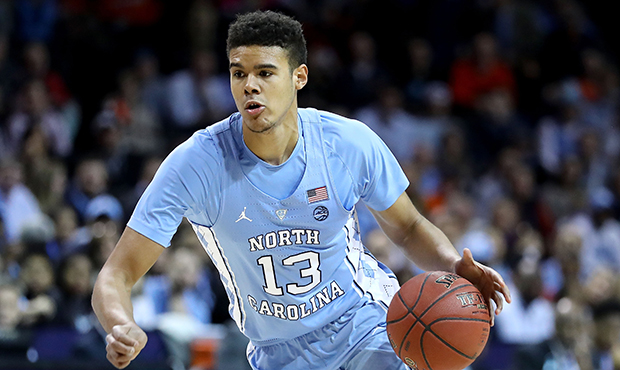
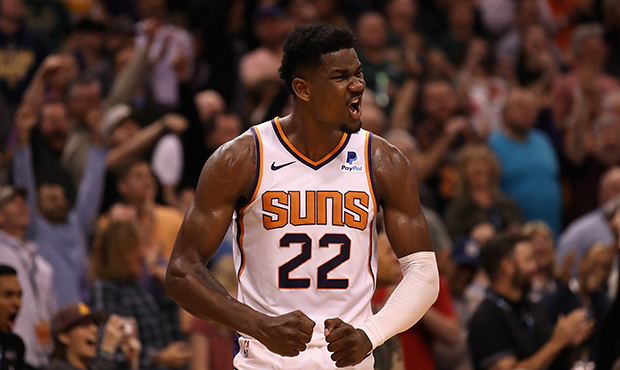
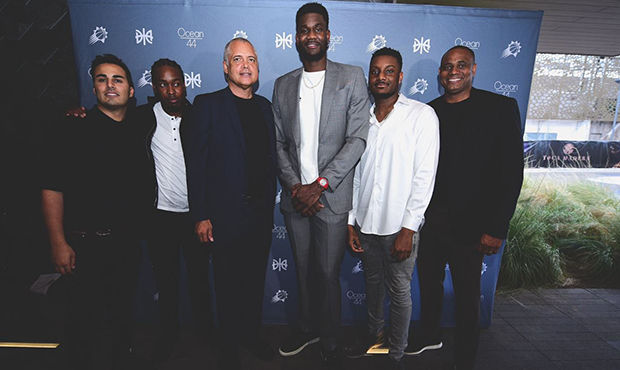
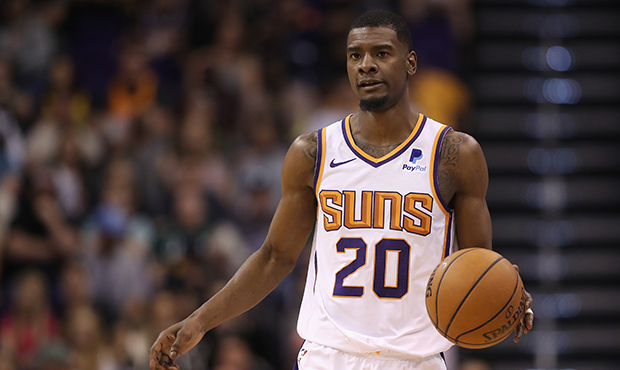

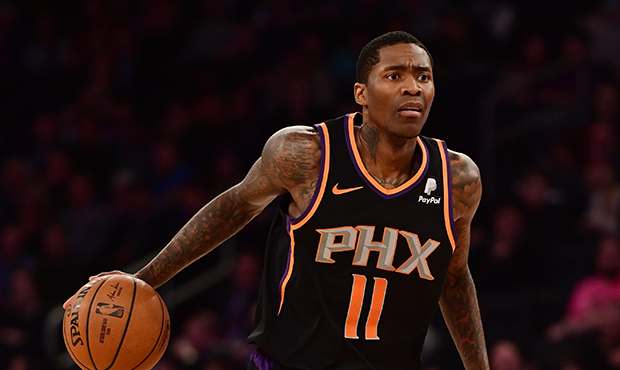
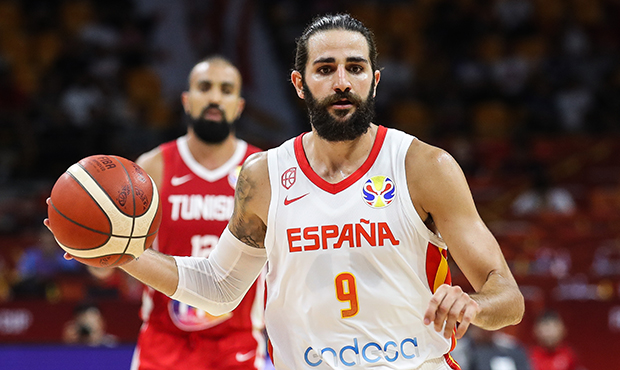
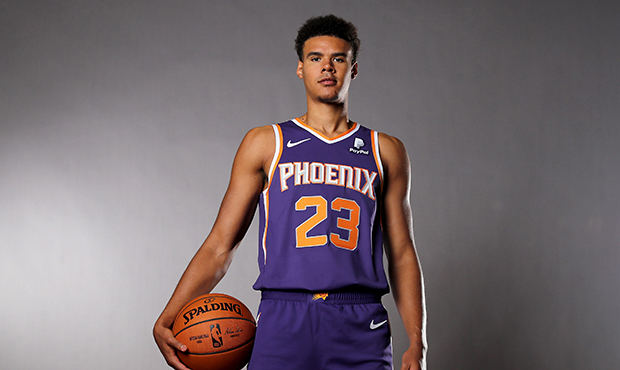
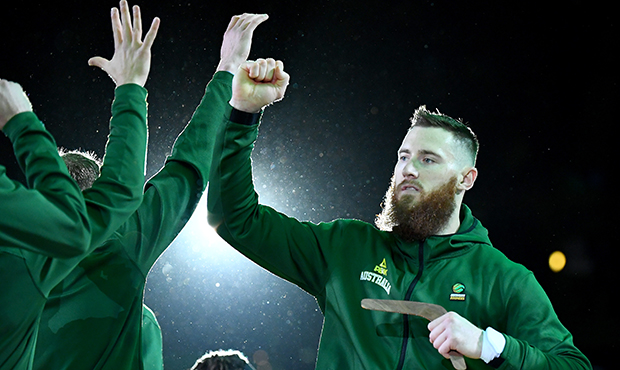
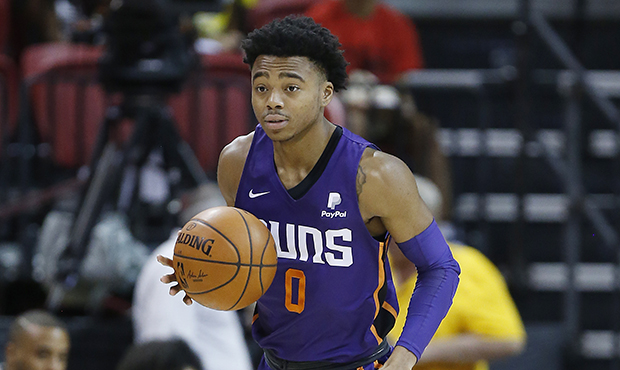
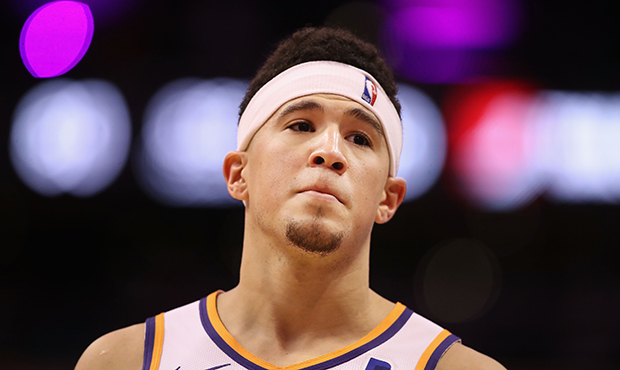
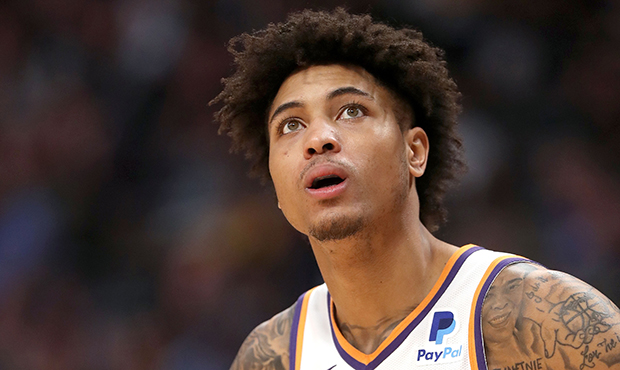
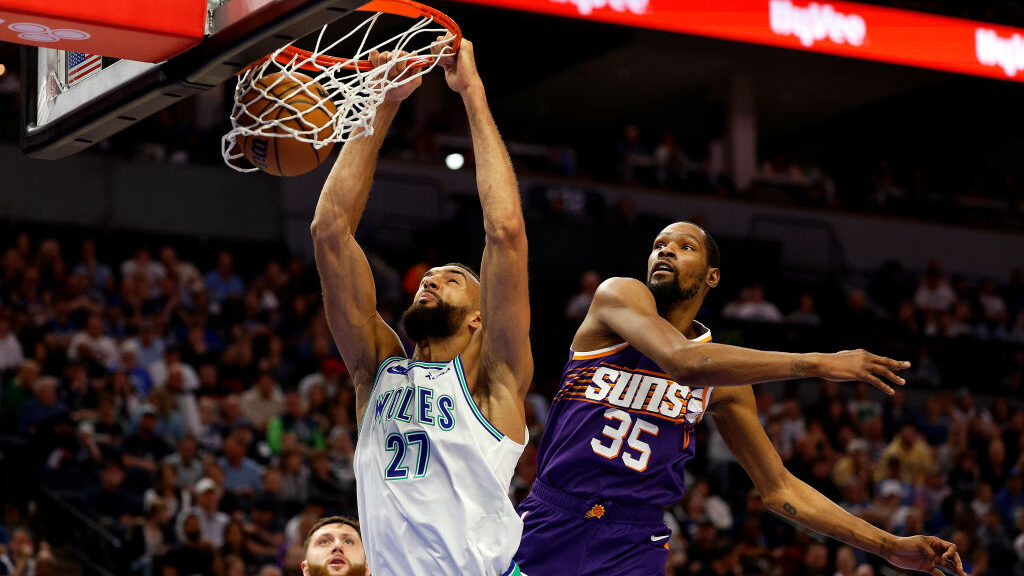
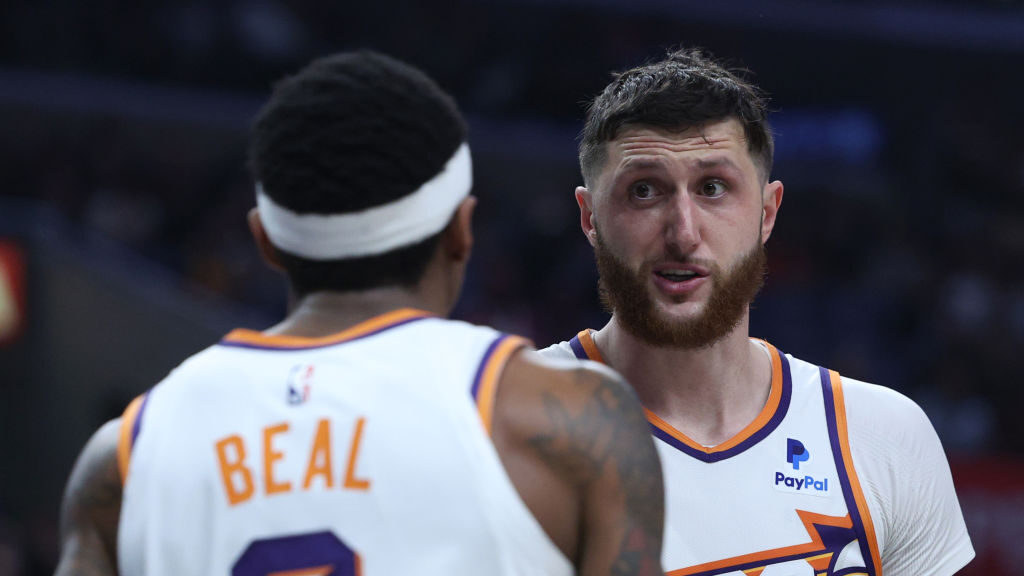
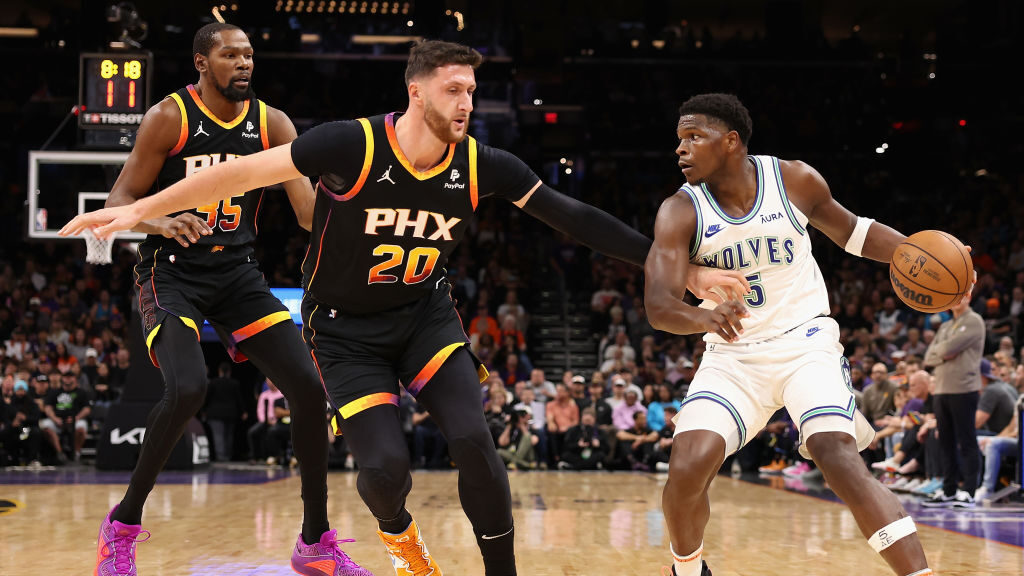
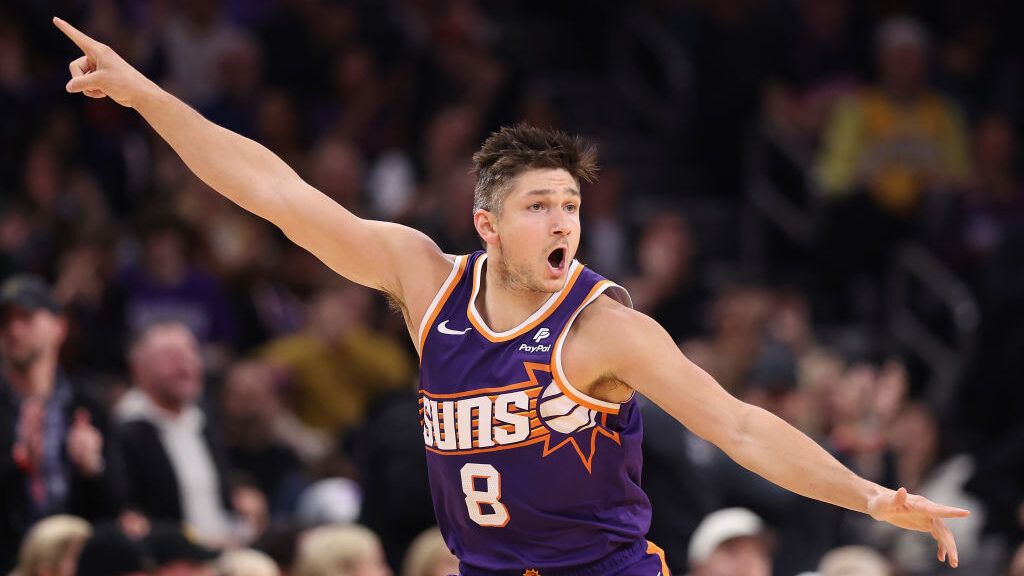
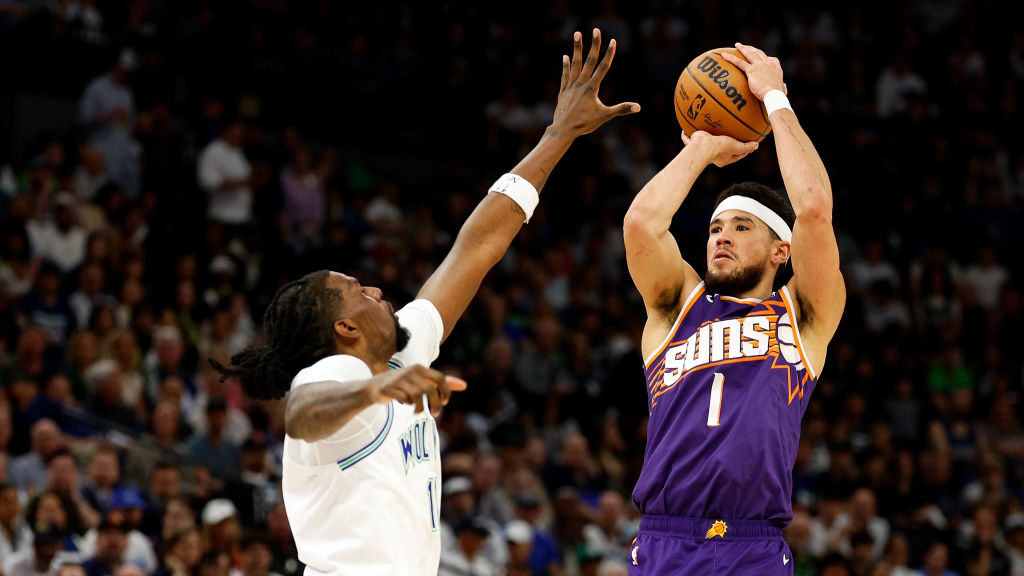
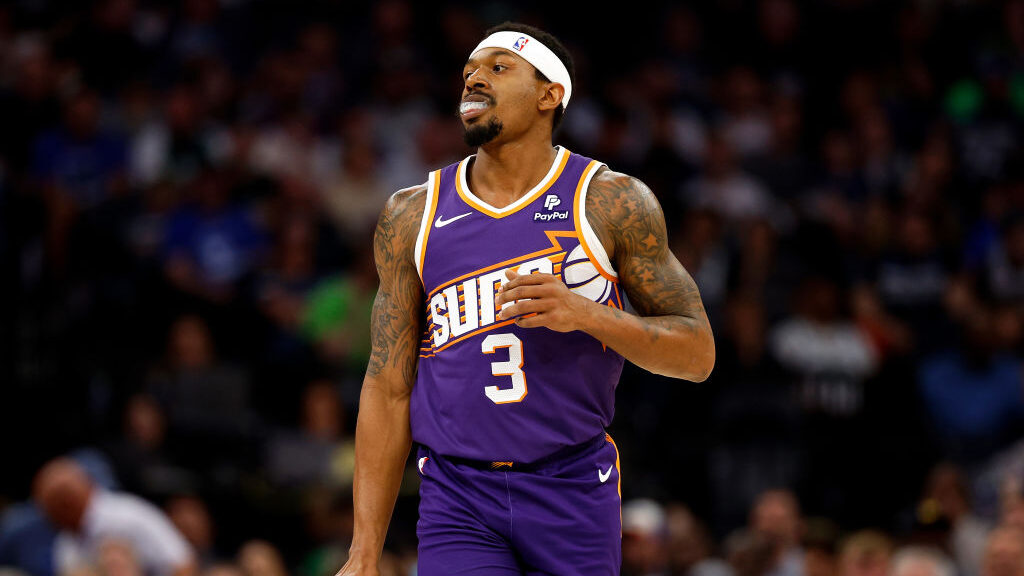
Comments